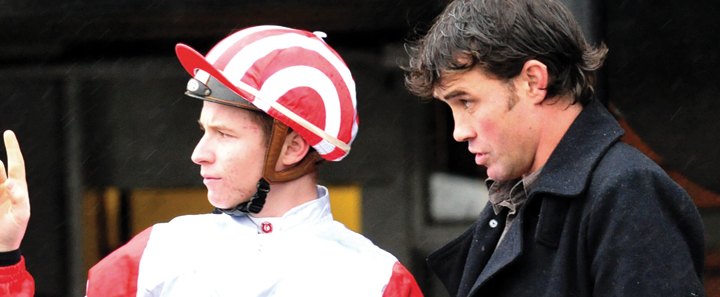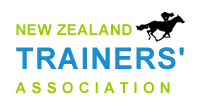Choosing a trainer

If you purchase a share in an authorised syndicate, you probably won't need to worry about selecting the right trainer for your horse, as most authorised syndicators will select a trainer based on their expert knowledge. However, if you have purchased the horse as the sole owner, there are some key factors to consider when you select a trainer.
Your trainer is responsible for training your racehorse, and for the care and wellbeing of your horse throughout its racing career. Trainers will often help organise other services for you such as breaking-in, pre-training and agistment.
Ideally, your chosen trainer should provide you with an Owner/Trainer agreement, which will clearly outline expectations and obligations including costs for training, racing and veterinary care; how decisions about the horse’s racing programme will be decided; any fees or commissions that the trainer may claim if you sell the horse at a profit; and how the trainer will communicate with you.
Communication
The most important attribute to look for when selecting a trainer is ability to communicate with their owners and their general philosophy towards training. The personal rapport you have with a trainer is important, as it can significantly impact the enjoyment you derive from owning and racing your horse.
Many trainers will phone, text or send emails to update their owners on the progress of their horse(s) at least fortnightly. Some will also send out photos and videos.
Training fees
Training fees are charged on a daily basis and vary depending on the horse’s stage of training. Most trainers invoice this as a monthly amount but you should also ask about any incidental charges, such as track fees, cover/ saddlery charges, blacksmith fees, normal vet costs and transport charges. If you are unsure whether the costs quoted are reasonable, you can contact either NZTR or the NZ Trainers’ Association to discuss.
Training record
When choosing your trainer, consider their experience, including the length of time they’ve been in their training career, and their success rate. You can find these statistics by searching for a trainer at the following web address: https://loveracing.nz/RaceInfo/Trainers.aspx
Stable location and facilities
You may want to see your horse as often as possible, so it’s important to consider where the trainer’s stables are located in relation to where you live. Each trainer will offer different facilities. Some may have access to the beach, a water walker, swimming pool and treadmill, in addition to a training track. Some may only stable their horses, while others will have access to paddocks as well. Either way, most trainers will be delighted to show you around their establishment without commitment, as long as you arrange the visit in advance.
Having a horse in training
Visiting the stable
Aside from racedays, one of the most enjoyable aspects of ownership is being able to visit your horse at the trainer’s stable and watch them in track work as they prepare for the races. Regular visits to the stables to see your trainer in person, adds greatly to the ownership experience.
Wherever you decide to send your horse, there are few more exciting sights than watching them working in the early morning. Springtime is especially upbeat at some of the bigger training centres at the Cambridge, Matamata, Awapuni and Riccarton tracks. They transform into a hive of activity with young horses preparing for the prestigious races ahead.
It is best to notify your trainer if you would like to visit the stable or attend track work. For most trainers, this is an important part of the service they offer and owners are usually welcome.
Health and safety in the training yard
If you are visiting the trainer’s stable or are at track work, please pay attention to your trainer’s general guidance and the venue’s health and safety guidelines. Racehorses, like any animal, can be unpredictable at times, and in many training facilities there may be a number of horses and people moving around. If you are unsure or feel uncomfortable, speak to your trainer. It’s definitely best to tell your trainer if you are inexperienced around racehorses, so that they can guide you more appropriately and ensure that you have a safe and enjoyable experience.
Getting ready to race
It’s usually the trainer's responsibility to plan the racing programme for your horse, including selecting the most suitable races. Ideally, the trainer will consult with the owner or racing manager, and consider factors such as the horse’s ability, distance preference and the track conditions where it’s most likely to perform best.
Before your horse’s first start, they will normally participate in a couple of jump outs and must run in a qualifying trial for experience. Jump outs give the horse experience of going into the gates and jumping out in a low pressure environment. They tend to be much a shorter distance than a trial or race (often under 1000m). Trials can be a little more competitive and can range in distances from 800m to 1500m (or up to 2000m for high weights/jumpers). Trials or jump outs are often used to get horses fit when coming back from a spell. After this stage, it’s time to get ready to race. Your horse’s first start will be in a maiden race, which is a field of horses who have never won a race.
The countdown to racing begins with the nomination, where your horse is entered for the selected race. This is followed by acceptances, where your horse will be allocated a barrier draw and the starting time of the race will be confirmed. The next step is the declaration of a jockey, which is when a jockey agrees to ride your horse in the race. Many jockeys will have a manager who contacts trainers when the nominations come out to organise rides at a certain raceday for the jockeys.
For more information please contact:

The New Zealand Trainers Association –
Executive Officer: Wendy Cooper
P O Box 300-073, Albany 0752
T: 09 412 6225
M: 021 927 776




